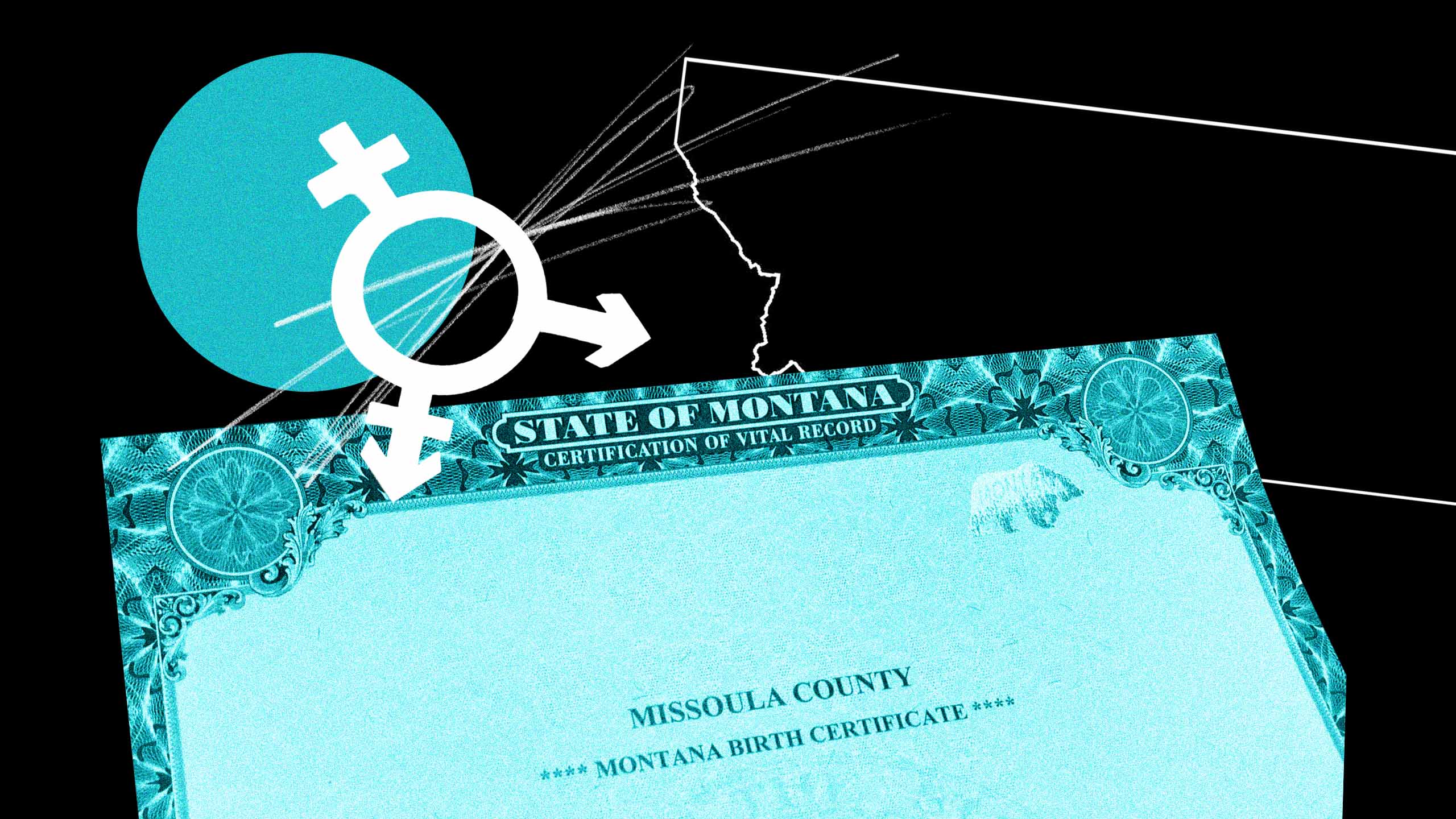Montana public health officials have banned nearly all changes to sex markers on birth certificates except in narrow bureaucratic circumstances, according to the Montana Free Press. The administrative rule, which came into effect on Saturday, Sept. 10, is the latest attempt by Republican Gov. Greg Giafonte’s right-wing administration to roll back trans rights in the state.
Advocates were quick to speak out about the ban. In a statement, Montana Human Rights Network (MHRN) called the ban “deeply disturbing” and “against the advice of physical and mental health experts, teachers, parents and affected community members.”
Shawn Reagor, Director of Equality and Economic Justice at MHRN, added, “Montanans made their will clear in the public comment process, and the justification the Gianforte administration has given for flying in the face of that will can most generously be described as gaslighting and misleading.”
A 2021 state law signed by Gov. Gianforte formerly required trans people to obtain a court order showing that their sex had been “changed by surgical procedure” before they could change their birth certificate. The ACLU of Montana subsequently challenged the law, and state judge Michael Moses found the rule could not be enforced until a court decided whether it was constitutional. He issued a preliminary injunction and ordered the state to return to its previous law, which allowed gender marker changes with a sworn affidavit and a gender designation form.
However, the state did not follow the ruling. A month later, Montana issued an emergency rule in May 2022 that banned all birth certificate changes, as well as changing the “gender” designation to a “sex” marker. This policy has now been made permanent, while Judge Moses is set to hear arguments over the legality of the emergency rule, according to PBS.
Under the new rule change, the sex on a birth certificate can only be updated if there was “a scrivener’s error or a data entry error” or other mistake. Updating the birth certificate requires “chromosomal, molecular, karyotpic, DNA, or genetic testing that can identify the sex of the individual,” along with extensive documentation.
Explicitly, the rule “do[es] not authorize the amendment of the sex identified/cited on a birth certificate based on gender transition, gender identity or change of gender.”
Although Montana is generally a conservative state, residents have opposed the rule. At a public hearing on the ban in June, local NBC affiliate KTVH reported that almost 100 Montanans said they opposed banning birth certificate changes, while only two supported the rule.
“I feel that my civil rights have already been unduly limited,” said respondent Gwen Nicholson, whose name change and gender transition were halted by the ban. “The risk of discrimination and physical harm that I face in my life has been elevated.”
A June 2022 report from UCLA’s Williams Institute estimated that 3,400 adults and 500 youth in the state are trans, or around 0.4 percent of the population. It is unclear how many intersex Montanans may be affected due to lack of data.
Susan Howard, a trans woman whose birth certificate change was blocked by the emergency law, told Kaiser Health News that the rule change “felt just awful.”
“Everything’s been changed except my birth certificate,” she said. “Everybody else has acknowledged my gender, but they will not do it.”
Having accurate documents is important for trans people to be able to work, travel or vote. Inaccurate identity documents can lead to denial of employment or housing, increased discrimination, harassment or physical violence, as well as negative health impacts. These challenges are widespread—a 2015 survey from the National Center for Transgender Equality found that only 21 percent of trans people had been able to update all of their IDs and documents, while 33 percent had not been able to update any.
Montana joins Oklahoma, Tennessee and West Virginia as states where trans and intersex individuals cannot update their birth certificates, according to the Movement Advancement Project tracker. Twelve states require proof of gender-affirming surgery, and eight states have unknown or unclear legislation. Gender-neutral birth certificates are only available in 16 states. The process to change the gender marker on one’s driver’s licence in Montana is currently publicly unclear, though it may still be possible with a doctor’s note and a name-change order.
The birth certificate law is not the only piece of legislation targeting trans people to be implemented by the Gianforte administration. Last year, the governor signed a bill prohibiting trans girls and women from participating on the sports team that matches their gender. While a bill restricting gender-affirming care for trans youth was also introduced, the state senate voted to indefinitely postpone it.
Update: September 16, 2022 2:38 pmOn Thursday, hours after a Montana judge issued an order blocking the enforcement of the state’s rule preventing trans Montanans from changing the gender marker on their birth certificate, the state announced that it planned to disregard the order. Experts noted that this kind of open defiance of a judge’s ruling is highly unusual, as disagreement is generally expressed via an appeal to a higher court.


 Why you can trust Xtra
Why you can trust Xtra


